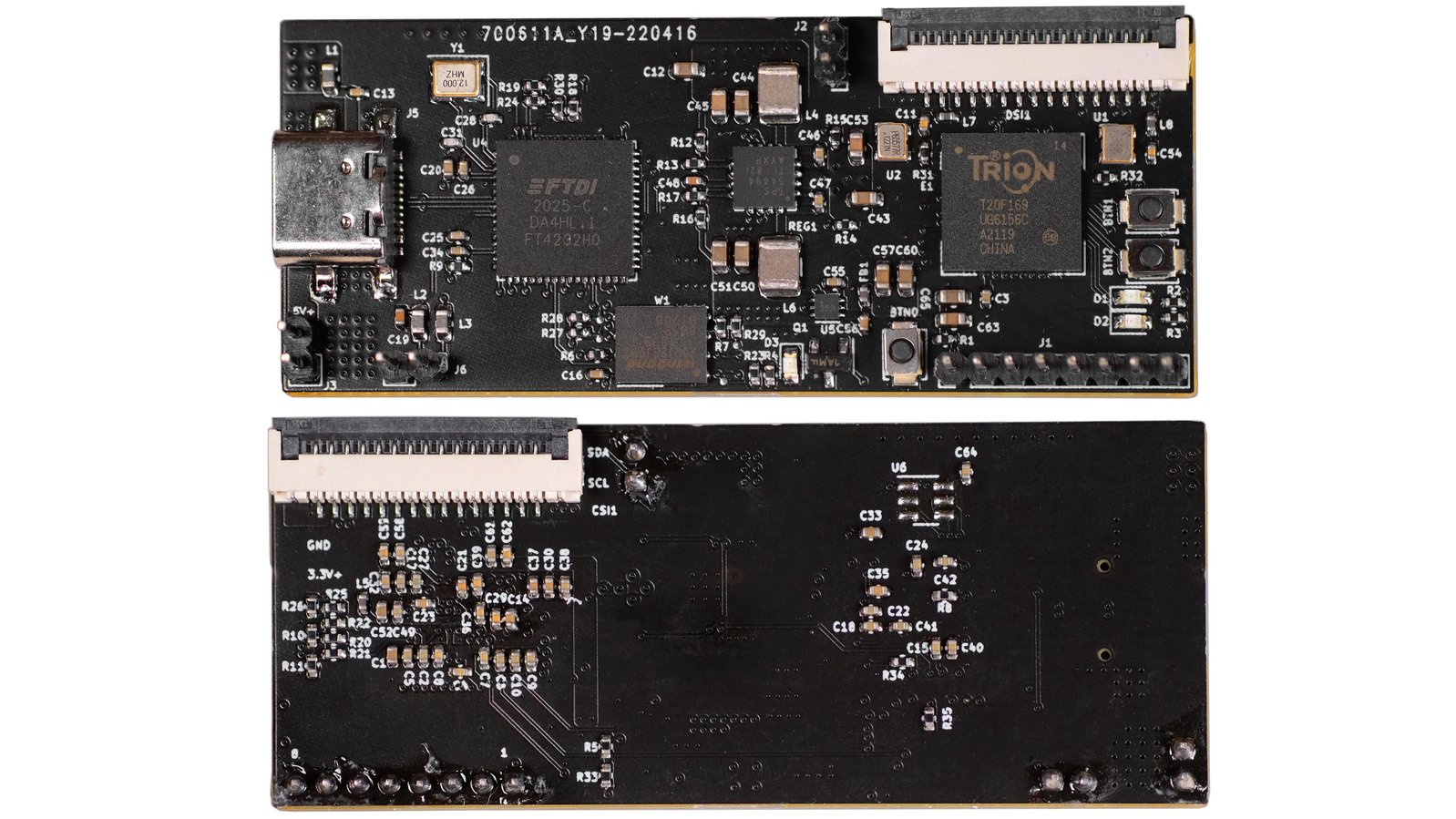Users can modify the VexRiscv CRiscV soft-core to suit workloads ranging from robotics to computer vision.
The Bajiu Lite, an open-source development board with an embedded RISC-V system-on-chip (SoC), is being prepared for release by FPGA specialist Dragon Li Studio.
According to the manufacturer, "Bajiu Lite is a resource-rich FPGA development board with 20k LE [Logic Elements], 36 multipliers, and up to 5 PLLs [Phase-Locked Loops]." "With relatively little power consumption, it can easily operate at frequencies beyond 150MHz. It is compact, practical, and built from the ground up to promote rapid FPGA development."
Features & Specifications
- 20,000
LEs
- 1 Mb
RAM
- 36
Multipliers
- 5 PLLs
- 1 MIPI
CSI
- 1 MIPI
DSI
- 3 LEDS
- 3
Buttons
- 10
GPIOs
- 128
Mbits Flash
- 2 UART
interfaces
- FTDI
JTAG Debugger
With pipelining ranging from two to five stages, branch prediction, a specialized multiplication, and division unit, and debugging facilities compatible with OpenOCD, CRiscV implements the 32-bit RV32I with optional MAFDC instruction set architecture.
A little under 20k logic elements, 36 multipliers, five PLLs, 1MB of embedded RAM, one MIPI Camera Serial Interface (CSI) port and one Display Serial Interface (DSI) port, three LEDs, three buttons, ten general-purpose input/output (GPIO) pins, 128Mb of flash, two UART buses, and JTAG debug support are all included on the Bajiu Lite board itself.
Dragon Li explains the meaning behind the name of the board: "Fun fact: 'Bajiu' means 8 * 9 = 72, which signifies the famous Monkey King's thousand varieties." "We picked this moniker since Bajiu Lite can implement any logic," the author said.
The Bajiu Lite GitHub repository has further details on the project and provides CRiscV and sample source code under the reciprocal GNU General Public License 3. Dragon Li also intends to offer boards via Crowd Supply, but neither a launch date nor a price has been made official.













.gif)




0 Comments